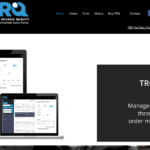Auto loans are a significant financial commitment for most people, and making payments on time is crucial to maintaining a good credit score.
While most auto lenders accept payments through traditional methods such as checks, online banking, and automatic withdrawals, some people may prefer to pay with their credit card.
This option can be convenient for those who want to earn rewards points or take advantage of a 0% APR promotion on their credit card.
However, not all auto lenders accept credit card payments, and those that do may have restrictions or fees associated with this payment method. Some lenders may only accept credit card payments for a portion of the loan amount, while others may require a processing fee for each payment.
It is essential to check with the lender directly to determine if they accept credit card payments and to understand any associated fees or restrictions.
Understanding Credit Card Payments for Auto Loans

Auto loans are a popular way for people to finance their vehicles, but what if you want to pay off your auto loan with a credit card? In this section, we will explore the pros and cons of using a credit card to pay off an auto loan.
Credit Card Payments Versus Direct Lending
When it comes to paying off an auto loan, there are two main options: direct lending and credit card payments.
Direct lending involves taking out a loan from a lender and making payments directly to the lender. Credit card payments, on the other hand, involve using a credit card to make payments on the auto loan.
One advantage of using a credit card to pay off an auto loan is that it can be a convenient way to make payments. Many credit cards offer rewards such as cashback or points for every dollar spent, which can be a great way to earn rewards while paying off your auto loan.
However, it is important to note that credit card payments may come with additional fees, such as transaction fees or balance transfer fees.
The Impact of Credit Score on Payment Options
When it comes to paying off an auto loan, your credit score can play a big role in determining your payment options. If you have a good credit score, you may be able to qualify for a low-interest rate loan, which can make it easier to pay off your auto loan.
On the other hand, if you have a poor credit score, you may have limited payment options and may need to consider using a credit card to make payments.
It is important to note that using a credit card to pay off an auto loan can impact your credit score. If you have a high credit card balance, it can negatively impact your credit utilization ratio, which can lower your credit score.
Additionally, if you miss a credit card payment, it can also negatively impact your credit score.
In conclusion, paying off an auto loan with a credit card can be a convenient way to make payments and earn rewards, but it is important to consider the fees and impact on your credit score.
It is recommended that you carefully weigh the pros and cons before deciding whether to use a credit card to pay off your auto loan.
Pros and Cons of Using Credit Cards for Car Payments
Benefits of Credit Card Payments
Using a credit card to pay for a car payment has some benefits. One of the most significant benefits is the rewards that come with using a credit card to make a payment.
Credit cards offer various rewards programs such as cashback, miles, or points that can be redeemed for travel, merchandise, or statement credits. These rewards can help offset the cost of the car payment and even earn the cardholder some extra money.
Another benefit of using a credit card for car payments is the flexibility it offers. Credit cards come with a credit limit, which is the maximum amount of money a cardholder can spend.
If the cardholder has a high credit limit, they can pay for the car payment in full, which can help them avoid paying high-interest rates on a car loan.
Potential Drawbacks and Risks
While using a credit card to pay for a car payment has some benefits, there are also potential drawbacks and risks. One of the most significant risks is the high-interest rates that come with credit cards.
If the cardholder cannot pay off the balance in full, they will be charged high-interest rates, which can quickly add up and become unmanageable.
Another potential drawback of using a credit card for car payments is the risk of overspending. Credit cards offer a line of credit, which can be tempting to use for purchases beyond the cardholder’s means.
If the cardholder overspends and cannot pay off the balance, they will be charged high-interest rates and may incur late fees, which can damage their credit score.
In conclusion, using a credit card to pay for a car payment has some benefits and potential drawbacks. Cardholders should weigh the pros and cons carefully before deciding to use a credit card for a car payment.
If they decide to use a credit card, they should make sure they can pay off the balance in full to avoid high-interest rates and late fees.
Auto Lenders That Accept Credit Card Payments

Auto Lenders and Their Policies
When it comes to making car loan payments with a credit card, it’s essential to understand the policies of different auto lenders. Some auto lenders may allow credit card payments for monthly installments, while others may not.
It’s important to check with individual lenders to understand their specific policies regarding credit card payments.
Understanding the Terms and Conditions
Before making a car loan payment with a credit card, it’s crucial to be aware of the terms and conditions set by both the auto lender and the credit card issuer.
This includes understanding any fees associated with using a credit card for car loan payments and ensuring that the payment method aligns with the lender’s policies.
Additionally, it’s important to consider the potential impact on credit scores and any potential limitations on the amount that can be paid using a credit card.
By being knowledgeable about the policies of auto lenders and credit card issuers, individuals can make informed decisions when it comes to using a credit card for car loan payments.
Credit Card Payment Methods for Auto Loans
Auto loans are a significant financial commitment, and making timely payments is essential to maintain a good credit score. Some auto lenders accept credit card payments, which can be a convenient option for borrowers.
However, not all lenders accept credit card payments, and there may be some limitations and fees associated with using this payment method.
Balance Transfer Options
Some credit card companies offer balance transfer options that allow borrowers to transfer the balance of their auto loan to a credit card.
This can be an attractive option for borrowers who have high-interest auto loans and want to take advantage of lower interest rates offered by credit cards.
However, borrowers should be aware of the transaction fees associated with balance transfers, which can range from 3% to 5% of the transfer amount.
Third-Party Payment Platforms
Another option for borrowers is to use third-party payment platforms such as Plastiq or Tio. These platforms allow borrowers to pay their auto loan using a credit card, even if the lender does not accept credit card payments.
However, these platforms charge a fee for their services, which can range from 2.5% to 3% of the payment amount. Borrowers should also be aware that payments made through third-party platforms may take longer to process than direct payments to the lender.
Cash Advances and Convenience Checks
Borrowers can also use cash advances or convenience checks provided by their credit card company to pay their auto loan. However, this option can be costly as cash advances and convenience checks often come with high-interest rates and transaction fees.
Borrowers should also be aware that cash advances and convenience checks are treated differently than regular credit card purchases, and interest accrues immediately after the transaction.
In conclusion, credit card payments can be a convenient option for borrowers to pay their auto loans. However, borrowers should be aware of the fees and limitations associated with using this payment method.
Borrowers should also make sure that their lender accepts credit card payments and choose the payment method that is most cost-effective for their situation.
Strategies to Minimize Costs and Maximize Rewards

Auto loans can be a significant expense for many people. Fortunately, some auto lenders accept credit card payments, which can help consumers earn rewards and cash back while also reducing their loan balance.
Here are some strategies to minimize costs and maximize rewards when using credit cards to pay auto loans.
Utilizing 0% APR Offers
One strategy to minimize costs is to take advantage of 0% APR credit card offers. Many credit card companies offer introductory 0% APR periods that can last anywhere from six to 21 months. During this time, cardholders can make payments on their auto loan without accruing any interest charges.
To take advantage of this strategy, consumers should look for a credit card with a long introductory 0% APR period and a low balance transfer fee.
They can then transfer their auto loan balance to the credit card and make payments during the 0% APR period. This can help them save on interest charges and pay off their auto loan faster.
Leveraging Rewards and Cash Back
Another strategy to maximize rewards is to use a rewards credit card to make auto loan payments. Many credit cards offer cash back or rewards points for every dollar spent, which can add up quickly over time.
Consumers should look for a credit card with a high rewards rate on auto loan payments and no annual fee. They can then use the credit card to make their auto loan payments and earn rewards or cash back on every payment.
Refinancing to Reduce Interest Rates
Finally, consumers can reduce their interest rates and save on interest charges by refinancing their auto loan. Refinancing involves taking out a new loan to pay off the existing auto loan, often at a lower interest rate.
To take advantage of this strategy, consumers should shop around for the best auto loan rates and terms. They should also consider their credit score, income, and other factors that can affect their ability to qualify for a lower interest rate.
By utilizing these strategies, consumers can save money on interest charges, earn rewards or cash back, and pay off their auto loans faster.
However, they should also be aware of any fees or restrictions associated with using credit cards to pay auto loans and make sure they are not taking on too much debt.
In Closing
Paying off a car loan with a credit card is possible, but it requires careful planning and consideration. Not all auto lenders accept credit card payments, and those that do may charge additional fees or require a workaround.
It’s important to weigh the benefits and drawbacks of using a credit card to pay off a car loan before making a decision.
If you’re considering using a credit card to pay off your car loan, be sure to check with your lender first to see if they accept credit card payments.
Some lenders may only accept payments through their own online payment system or by mail. Others may accept credit card payments but charge a convenience fee, which could add up over time.
If you do decide to pay off your car loan with a credit card, be sure to choose a card with a low interest rate and no annual fee. You may also want to consider a card with a rewards program, such as cash back or travel rewards, to help offset the cost of the convenience fee or interest charges.
Ultimately, paying off a car loan with a credit card can be a convenient way to manage your finances, but it’s important to do your research and understand the potential costs and risks involved.
By weighing your options and choosing the right card and lender, you can make the most of your credit card and stay on top of your car payments.



![Interference Engine List [and Non-Interference Engine List] interference engine list](https://roadsumo.com/wp-content/uploads/2021/06/interference-engine-list-150x150.jpg)


![Walmart Auto Center Prices [Full List] Walmart Auto Center Prices](https://roadsumo.com/wp-content/uploads/2022/07/Walmart-Auto-Center-prices-150x150.jpg)

![Read more about the article Costco Roadside Assistance – How to Get It [Full Guide]](https://roadsumo.com/wp-content/uploads/2022/12/Costco-roadside-assistance-300x200.jpg)
